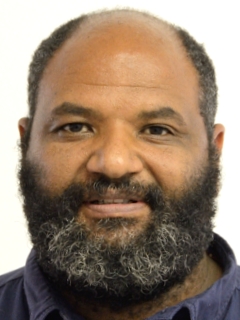Left in the Dark
By Rev Quinton W Liebenberg, M.Div, Contributing Writer
The 52nd session of the AMEC General Conference commenced on 20th August 2024Columbus, Ohio, USA. Delegates from districts 1-20 assembled to do the work of the church which would include accepting new bills, receiving reports, deliberating on numerous issues, electing and assigning bishops to serve the church. I would assume that this assembly for districts 1-13 has been preceded by many Convos and other forums where the business of the general conference would be discussed. In the case of districts 14-20 our last meeting was held in Johannesburg under the banner of the GDC. At this meeting most of our talk time was devoted to the “Covenant” and the election of a candidate from districts 14-20 to the episcopacy.
In my view, when the conference started it was clear that districts 14-20 was “left in the dark” with regards to many issues. One of them being the report from the Sexual Ethics Discernment Committee and the issues relating to the Retirement fund. it was still expected of the delegates to actively participate. This is one perception that I think is necessary to mention. When I look at district 1-13, I sometimes view it as one country with many episcopal districts. When I view districts 14,-20, I often see one continent and many countries. District 16, representing Guyana/Suriname, Virgin Islands, European, Dominican Republic, Haiti, Jamaica, and Windward Islands, is often included in the African continent. So for debating purposes it always boils down to Africa vs America.
The abovementioned perception is perhaps part of the distorted views influencing our points of reference when we debate or receive responses from the GDC.It contributes much to our “left in the dark” title. The GDC would normally debate from an African perspective instead of a global excluding the Americans perspective. This view is needed as it creates more confusion with regards to addressing issues relating to the church from a GDC point of view.
Is the church in districts 14-20 really left in the dark? Well the closest to including the church in any debate would be to dial in on zoom or limited participation. The level of p[articipation at this general conference could support my view. The seventeenth district submitted legislation with regards to their epicopal boundaries which is creating barriers for growth and effective management. After calling on the floor a number of times for their bill to be heard, various chairpersons referred the bill to other commissions and like in the past a GDC matter became a 17th matter and ultimately disappeared in thin air. This is just one example where everybody except the 17th were left in the dark.
So how do we come out of the dark? Well each independent district must reflect on their gifts and talents. Our political history has blessed us with enough strategies and ways on how to create the trajectory of total inclusion. Members of the AMEC must take it upon themselves to get involved and demand active participation and recognition. not just using the voting devices but critically asking the question prior to each vote:”Do I have enough information to make a selection on the voting device?” Abstaining from voting is also a vote. This might be a consideration for 2028 if you feel you are still in the dark. My plea however is to make every effort to get out of the dark and be counted and heard.






I enjoyed reading your article. We need to meet and hear everyone voices.
Glad that you have enjoyed this article. Yes we need to especially in preparing our church for future challenges, unity is essential. Blessings
Left in the dark. In this age of enlightenment, and the means to shrink the earth by electronic means, telephone, email, Zoom, TEAMS, social media. The concerns regarding lack of information and lack of concern for those in Episcopal Districts 16-20 is remarkable. The means to bring about change are also available as it was to those who fought for civil rights. The question then becomes are we willing to use those avenues to be heard. When I heard others say the Districts in Africa are training grounds it pained me because you would think all Districts are equal in responsibility, but unequal in power. Even in District 1-13 the “desirable” districts because of size, income and history the same dynamic plays out. I pray for our brothers and sisters in Africa and in the Caribbean. We are one church and the discussions and opinion in this edition as well as throughout the connection shows there is work for healing and reconciliation to be done. Let us do it in Jesus’ name.
Rev. Roger Williams
I agree and will advance this goal of total involvement for districts 14-20. Blessings
Aluta continua 💪🏼Africa Unite to be counted- let your vote be your voice
Thanks